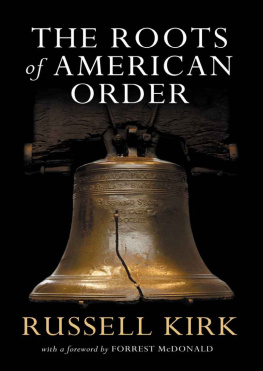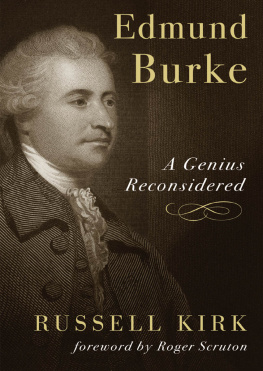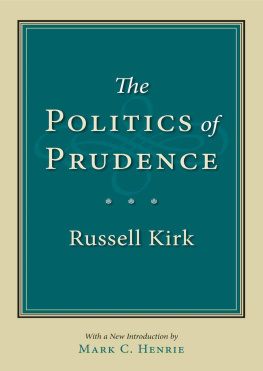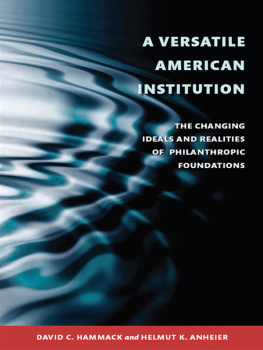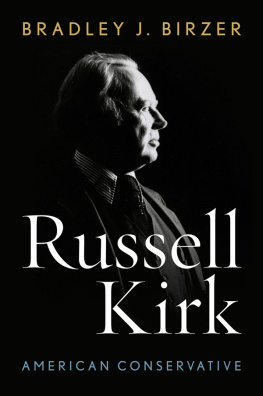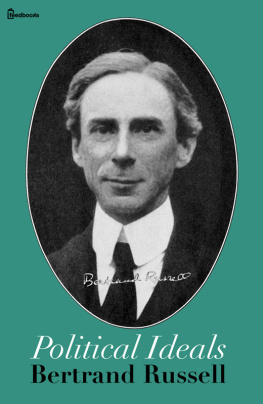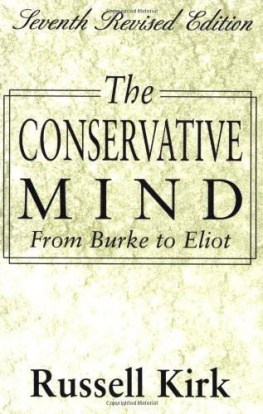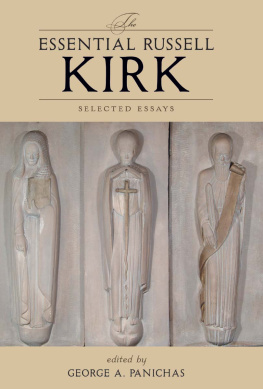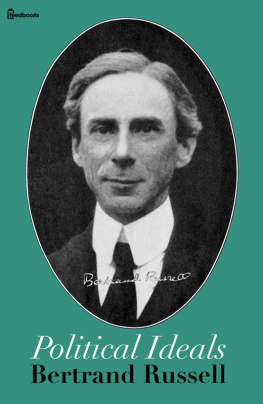Russell Kirk - The Roots of American Order
Here you can read online Russell Kirk - The Roots of American Order full text of the book (entire story) in english for free. Download pdf and epub, get meaning, cover and reviews about this ebook. year: 1974, publisher: Open Court, genre: Art. Description of the work, (preface) as well as reviews are available. Best literature library LitArk.com created for fans of good reading and offers a wide selection of genres:
Romance novel
Science fiction
Adventure
Detective
Science
History
Home and family
Prose
Art
Politics
Computer
Non-fiction
Religion
Business
Children
Humor
Choose a favorite category and find really read worthwhile books. Enjoy immersion in the world of imagination, feel the emotions of the characters or learn something new for yourself, make an fascinating discovery.
- Book:The Roots of American Order
- Author:
- Publisher:Open Court
- Genre:
- Year:1974
- Rating:4 / 5
- Favourites:Add to favourites
- Your mark:
- 80
- 1
- 2
- 3
- 4
- 5
The Roots of American Order: summary, description and annotation
We offer to read an annotation, description, summary or preface (depends on what the author of the book "The Roots of American Order" wrote himself). If you haven't found the necessary information about the book — write in the comments, we will try to find it.
The Roots of American Order — read online for free the complete book (whole text) full work
Below is the text of the book, divided by pages. System saving the place of the last page read, allows you to conveniently read the book "The Roots of American Order" online for free, without having to search again every time where you left off. Put a bookmark, and you can go to the page where you finished reading at any time.
Font size:
Interval:
Bookmark:
RUSSELL KIRK

W ILMINGTON , D ELAWARE
The writing of this fat book was made possible by Pepperdine University and its benefactors. Mr. Romuald Gantkowski, of that university, courteously prodded me into completing the labor.
The typescript was read and criticized by Dr. Warren Fleischauer, Dr. Regis Courtemanche, Dr. Henry Fairbanks, Mr. Michael Joyce, Mr. Sherwood J. B. Sugden, and Dr. Jim Johnson; I am grateful to them. For help in preparing the index and bibliography, I am in debt to Miss Colby Rogers, Mrs. Jerry Schiffer, Mr. Boyd Cathey, Mr. Dennis Flynn, Mr. Gordon Tresch, and Mr. James Gorski. I am also indebted to Miss A. Marjorie Martin, who read the proofs.
Some small portions of this volume, in altered form, have been published in The Intercollegiate Review, The Center Magazine, Triumph, Tale Review, The Month, Christianity Today, Saltire, Catholic World, Contemporary Review, History Today, and The New York Times Book Review. Other portions I have read aloud to classes of mine at Hillsdale College and Central Michigan University, or to my wife, Annette Yvonne Cecile, and our patient guests at our haunted old house of Piety Hill.
Mecosta, Michigan
June, 1974
The meaning of the word order. Simone Weil on order. Mores and laws as sources of order. The inner order of the soul and the outer order of the commonwealth. Order has primacy: a Russian example. No individual can create order. The modern problem of order is similar to the problem in the times of Plato and of Cicero. Ideology as a menace to order. For an order to live, both permanence and progression are necessary.
The meaning of the word revelation. The exodus of the Israelites and the exodus of the Puritans. The Hebrews law. Religion is the source of all aspects of civilization: this truth is better understood today. Moses transcendent perception gave meaning to human existence. American political institutions owe little to Israel, but America's moral order owes much.
Brief history of Israel and Judah. Israel's contribution to order: the understanding that God is the source of order and justice. Jerusalem as the city of divine wisdom.
Job and the incomprehensibility of God. Yahweh and the Covenant. The Fall of mankind. The ancient search for order: Dispute over Suicide. The Decalogue. The Law of Yahweh. The ideas of covenant and law in America.
The nature of a prophet. Amos proclaims that Yahweh is the God of all peoples. Hosea speaks for the stern but loving God. The first Isaiah describes the divine order in history. Micah and Habakkuk foretell the wrath and mercy of Jehovah. Jeremiah announces the New Covenant of private conscience and insight. The second Isaiah foretells that Israel shall be as a light to the nations. Summary of the prophets labors. The enduring truth of the Law and the Prophets.
Sacred history and secular history. Understanding the Old Testament. The Hebrews become aware of eternity. Hellenic linear time and Hebraic psychic time. God's intervention in time. The Hebrew concept of order. Disorder as the rejection of divine wisdom. Universal recognition of certain natural laws. Revelation as the foundation of order: illustration from the Danakil people.
The Puritans parallels with the Hebrews. Calvinism, in various forms, shaped American character. The Old Testament and American social realism. American democracy and the transplanted legacy of Israel.
Ancient Greece no happy model for American politics. Greek hubris, arrogance. The Greek genius. Causes of Greek political failure. Inadequacy of the Greek religion; its darker side. Akragas and the chthonian deities. Turbulence of Greek society.
Solon as an exemplar for Americans. Solon's enduring achievement. His background and character. Athens decline late in the seventh century B.C. The Laws of Draco. Social ills of Athens. Solon and righteous order, eunomia. Solon reforms the constitution of Athens: economic and political renewal. Solon resigns power. Solon's ethical basis for order: the spiritual statesman. The tyranny of Peisistratus in Athens. Solon happy in the hour of his death.
Greek tyrannies of the late sixth century B.C.; growth of democracies. New Athenian constitution of Cleisthenes. The Greeks hard pressed from east and west; Greek victories over enemies; beginning of Greece's Great Age. Ascendancy of Pericles in Athens; Athenian civilization. Injustice of Athens as a cause of the Peloponnesian War. Athens falls before Spartan power, after failure of the Syracusan expedition. Carthage destroys Akragas. The Greek order of the polis begins to dissolve.
Limited direct influence of Plato and Aristotle upon early Americans. Ideas of those philosophers permeated western civilization nevertheless. Socrates life and death. Plato and his Academy; his endeavor. Plato no Utopian. Plato's vain attempts at Syracuse. His ambition to restore order in the soul and order in the republic. Meanings of philodoxer and philosopher. The Greek sophists. The meaning of the word soul. Homer's concepts of the soul and of order. Hesiod on these subjects. The search for righteousness through tragedy. Protagoras and man as the measure of all things. The reply of Socrates and Plato to the sophists: God as the measure of all things. Plato speaks in symbol and parable. General Platonic doctrines. Analysis of The Republic. Platonic justice and law. Analogy of the soul and the state. Plato and the dark night of the soul. Platonic thought's later influence.
Events in the life of Aristotle. Aristotle's Politics, Ethics, and Poetics now more meaningful than his scientific works. Differences between Plato and Aristotle. Ethics and politics form one study. Aristotle's theory of order in the polis. The Golden Mean. The true polity. Merits and weaknesses of the middle class. Decline of the Greek city-states: some reasons. Much of Aristotle's politics not applicable to colonial America, but the idea of political and social balance was incorporated into American laws. Hellenic thought contributed to American morality and political principles.
Rome as the power which withholds. Brief history of the early Roman Republic. Roman morals: description by Polybius. The polity of the Republic. Roman features in the Constitution of the United States. Polybius prediction of Roman decadence. Strength of the Roman family. The meaning of piety. Causes of the Republic's decay. Period of civil struggles in Italy. The First Triumvirate.
Cicero's influence upon eighteenth-century schooling and political style. Brief biography of Cicero: a model of republican virtue. Cicero on true law. The jus civile and the jus gentium. Origins of the jus naturale. Definitions of natural law. Benefits of natural-law doctrine to Roman society. This legacy passed on to later ages. Cicero on the relations among law, justice, and reason. Natural law and ethical principles. Resort to natural law justified in time of crisis. Later revolutionary influence of natural-law theory.
Reforms of Augustus. Virgil on the Roman mission. Meanings of labor, pietas, fatum. The Roman Stoic philosophers: their doctrines. Character of Seneca; character of Epictetus. The Silver Age of Latin letters.
Character of Marcus Aurelius. His Meditations. His career. Moral degradation of the Roman masses during his reign. The strength of resignation. Failure of the Stoic philosophy to regenerate the Roman populace. End of the Antonine line in Commodus.
Diocletian establishes a despotism. Good qualities of the Emperor Diocletian: his hard necessities. Decay of Roman order in the third century. Monuments of Diocletian's time. Social and moral causes of Roman decadence. The problem of centralization. Disharmony among classes. Economic afflictions. Weakening of the old Roman religion. Failure of emperor-worship. The coming of oriental mystery-cults. Christianity triumphs too late to save the western empire. The late Roman world a dead world: ruin of labor, pietas, fatum. Rise of Alaric; his Goths sack Rome. The Roman experience mentioned at Philadelphia in 1787: a cautionary lesson. Survival of Roman law in the eastern empire and in medieval Italy. America's present parallel with the Roman tension.
Font size:
Interval:
Bookmark:
Similar books «The Roots of American Order»
Look at similar books to The Roots of American Order. We have selected literature similar in name and meaning in the hope of providing readers with more options to find new, interesting, not yet read works.
Discussion, reviews of the book The Roots of American Order and just readers' own opinions. Leave your comments, write what you think about the work, its meaning or the main characters. Specify what exactly you liked and what you didn't like, and why you think so.

